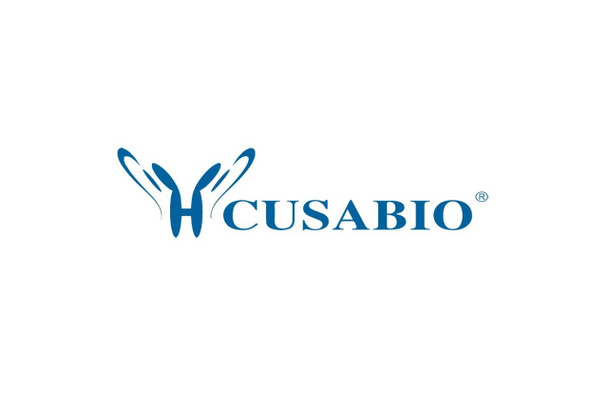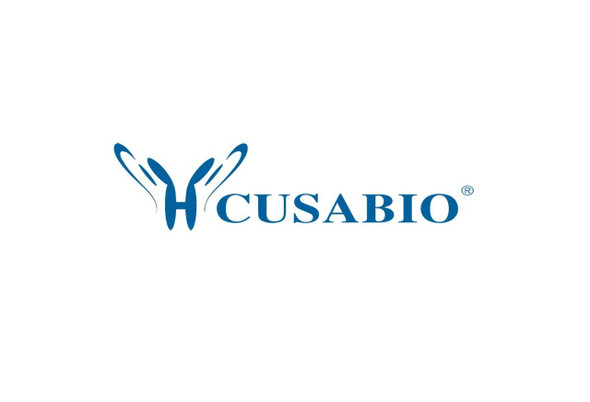Cusabio Escherichia coli Recombinants
Recombinant Escherichia coli Murein tetrapeptide carboxypeptidase (ldcA) | CSB-EP303469ENV
- SKU:
- CSB-EP303469ENV
- Availability:
- 13 - 23 Working Days
Description
Recombinant Escherichia coli Murein tetrapeptide carboxypeptidase (ldcA) | CSB-EP303469ENV | Cusabio
Alternative Name(s): LD-carboxypeptidase AMuramoyltetrapeptide carboxypeptidase
Gene Names: ldcA
Research Areas: Others
Organism: Escherichia coli (strain K12)
AA Sequence: MSLFHLIAPSGYCIKQHAALRGIQRLTDAGHQVNNVEVIARRCERFAGTETERLEDLNSLARLTTPNTIVLAVRGGYGASRLLADIDWQALVARQQHDPLLICGHSDFTAIQCGLLAHGNVITFSGPMLVANFGADELNAFTEHHFWLALRNETFTIEWQGEGPTCRAEGTLWGGNLAMLISLIGTPWMPKIENGILVLEDINEHPFRVERMLLQLYHAGILPRQKAIILGSFSGSTPNDYDAGYNLESVYAFLRSRLSIPLITGLDFGHEQRTVTLPLGAHAILNNTREGTQLTISGHPVLKM
Source: E.coli
Tag Info: N-terminal 6xHis-tagged
Expression Region: 1-304aa
Sequence Info: Full Length
MW: 37.6 kDa
Purity: Greater than 90% as determined by SDS-PAGE.
Relevance: Releases the terminal D-alanine residue from the Cytoplasmic domain tetrapeptide recycling product L-Ala-gamma-D-Glu-meso-Dap-D-Ala. To a lesser extent, can also cleave D-Ala from murein derivatives containing the tetrapeptide, i.e. MurNAc-tetrapeptide, UDP-MurNAc-tetrapeptide, GlcNAc-MurNAc-tetrapeptide, and GlcNAc-anhMurNAc-tetrapeptide. Does not act on murein sacculi or cross-linked muropeptides. The tripeptides produced by the LcdA reaction can then be reused as peptidoglycan building blocks; LcdA is thereby involved in murein recycling. Is also essential for viability during stationary phase.
Reference: A defect in cell wall recycling triggers autolysis during the stationary growth phase of Escherichia coli.Templin M.F., Ursinus A., Hoeltje J.-V.EMBO J. 18:4108-4117(1999)
Storage: The shelf life is related to many factors, storage state, buffer ingredients, storage temperature and the stability of the protein itself. Generally, the shelf life of liquid form is 6 months at -20?/-80?. The shelf life of lyophilized form is 12 months at -20?/-80?.
Notes: Repeated freezing and thawing is not recommended. Store working aliquots at 4? for up to one week.
Function: Releases the terminal D-alanine residue from the cytoplasmic tetrapeptide recycling product L-Ala-gamma-D-Glu-meso-Dap-D-Ala. To a lesser extent, can also cleave D-Ala from murein derivatives containing the tetrapeptide, i.e. MurNAc-tetrapeptide, UDP-MurNAc-tetrapeptide, GlcNAc-MurNAc-tetrapeptide, and GlcNAc-anhMurNAc-tetrapeptide. Does not act on murein sacculi or cross-linked muropeptides. The tripeptides produced by the LcdA reaction can then be reused as peptidoglycan building blocks; LcdA is thereby involved in murein recycling. Is also essential for viability during stationary phase.
Involvement in disease:
Subcellular Location: Cytoplasm
Protein Families: Peptidase S66 family
Tissue Specificity:
Paythway:
Form: Liquid or Lyophilized powder
Buffer: If the delivery form is liquid, the default storage buffer is Tris/PBS-based buffer, 5%-50% glycerol. If the delivery form is lyophilized powder, the buffer before lyophilization is Tris/PBS-based buffer, 6% Trehalose, pH 8.0.
Reconstitution: We recommend that this vial be briefly centrifuged prior to opening to bring the contents to the bottom. Please reconstitute protein in deionized sterile water to a concentration of 0.1-1.0 mg/mL.We recommend to add 5-50% of glycerol (final concentration) and aliquot for long-term storage at -20?/-80?. Our default final concentration of glycerol is 50%. Customers could use it as reference.
Uniprot ID: P76008
HGNC Database Link: N/A
UniGene Database Link: N/A
KEGG Database Link: KEGG
STRING Database Link: STRING
OMIM Database Link: N/A









